第34章 THE THREAT(1)
Sir Lulworth Quayne sat in the lounge of his favourite restaurant, the Gallus Bankiva, discussing the weaknesses of the world with his nephew, who had lately returned from a much-enlivened exile in the wilds of Mexico. It was that blessed season of the year when the asparagus and the plover's egg are abroad in the land, and the oyster has not yet withdrawn into it's summer entrenchments, and Sir Lulworth and his nephew were in that enlightened after-dinner mood when politics are seen in their right perspective, even the politics of Mexico.
"Most of the revolutions that take place in this country nowadays," said Sir Lulworth, "are the product of moments of legislative panic.
Take, for instance, one of the most dramatic reforms that has been carried through Parliament in the lifetime of this generation. It happened shortly after the coal strike, of unblessed memory. To you, who have been plunged up to the neck in events of a more tangled and tumbled description, the things I am going to tell you of may seem of secondary interest, but after all we had to live in the midst of them."
Sir Lulworth interrupted himself for a moment to say a few kind words to the liqueur brandy he had just tasted, and them resumed his narrative.
"Whether one sympathises with the agitation for female suffrage or not one has to admit that its promoters showed tireless energy and considerable enterprise in devising and putting into action new methods for accomplishing their ends. As a rule they were a nuisance and a weariness to the flesh, but there were times when they verged on the picturesque. There was the famous occasion when they enlivened and diversified the customary pageantry of the Royal progress to open Parliament by letting loose thousands of parrots, which had been carefully trained to scream 'Votes for women,' and which circled round his Majesty's coach in a clamorous cloud of green, and grey and scarlet. It was really rather a striking episode from the spectacular point of view; unfortunately, however, for its devisers, the secret of their intentions had not been well kept, and their opponents let loose at the same moment a rival swarm of parrots, which screeched 'I DON'T think' and other hostile cries, thereby robbing the demonstration of the unanimity which alone could have made it politically impressive. In the process of recapture the birds learned a quantity of additional language which unfitted them for further service in the Suffragette cause; some of the green ones were secured by ardent Home Rule propagandists and trained to disturb the serenity of Orange meetings by pessimistic reflections on Sir Edward Carson's destination in the life to come. In fact, the bird in politics is a factor that seems to have come to stay; quite recently, at a political gathering held in a dimly-lighted place of worship, the congregation gave a respectful hearing for nearly ten minutes to a jackdaw from Wapping, under the impression that they were listening to the Chancellor of the Exchequer, who was late in arriving."
"But the Suffragettes," interrupted the nephew; "what did they do next?"
"After the bird fiasco," said Sir Lulworth, "the militant section made a demonstration of a more aggressive nature; they assembled in force on the opening day of the Royal Academy Exhibition and destroyed some three or four hundred of the pictures. This proved an even worse failure than the parrot business; every one agreed that there was always far too many pictures in the Academy Exhibition, and the drastic weeding out of a few hundred canvases was regarded as a positive improvement. Moreover, from the artists' point of view it was realised that the outrage constituted a sort of compensation for those whose works were persistently 'skied', since out of sight meant also out of reach. Altogether it was one of the most successful and popular exhibitions that the Academy had held for many years. Then the fair agitators fell back on some of their earlier methods; they wrote sweetly argumentative plays to prove that they ought to have the vote, they smashed windows to show that they must have the vote, and they kicked Cabinet Ministers to demonstrate that they'd better have the vote, and still the coldly reasoned or unreasoned reply was that they'd better not. Their plight might have been summed up in a perversion of Gilbert's lines - "Twenty voteless millions we, Voteless all against our will, Twenty years hence we shall be Twenty voteless millions still."